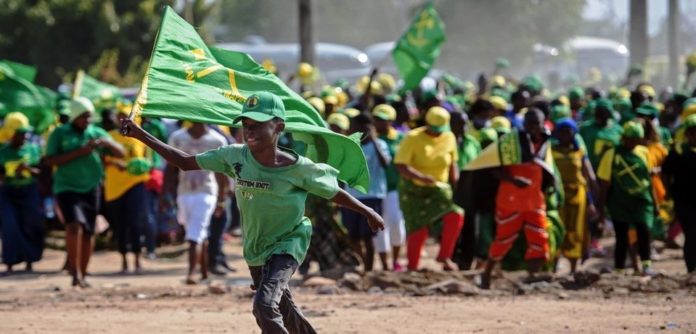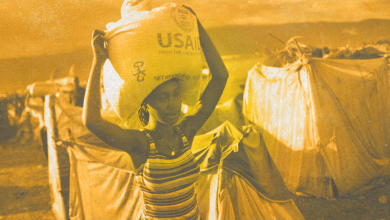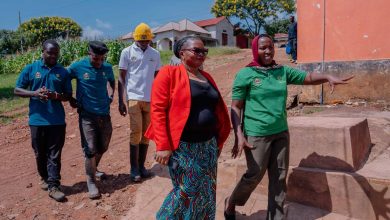COLUMN: THE CLIFF. The politics of progress 2025

AS the sun rises over the fertile slopes beneath Mount Kilimanjaro, Mwanahawa, a smallholder farmer in Moshi Rural, prepares to attend a lively ward meeting.
For Mwanahawa and thousands like her—farmers, teachers, youth leaders and entrepreneurs—the upcoming Chama Cha Mapinduzi (CCM) parliamentary primaries are no ordinary political event.
They represent a choice, a chance to shape not just leadership, but the very economic future of their communities.
Moshi Rural, sprawling across 32 wards and over 180 villages with a population surpassing 270,000, stands as a microcosm of Tanzania’s rural democracy. Here, politics and development are deeply intertwined and the stakes of leadership transcend party loyalty to touch on livelihoods, services and opportunity.
At the centre of this electoral moment are seven diverse candidates: Salim Kikeke, Victor Tesha, Deo Mushi, Prof Ndakidemi, Felister Njau, Wilbard Kitale and Maurice Makoi.
Each brings a distinct vision, but it is Victor Tesha—a former international development advisor and champion of civic reform—who has captured attention with a campaign rooted in economic inclusion, digitisation of cooperatives and fiscal empowerment for village governments.
Tesha’s approach is bold yet grounded in measurable finance-driven policies aimed at transforming subsistence farming into thriving agribusiness. Unlike many primaries marked by factionalism and rhetoric, Moshi Rural’s contest is unfolding with a refreshing focus on ideas and execution.
ALSO READ: Lundo Island: A strategic investment in sustainable tourism
This signals a promising shift within the country’s dominant party toward programmatic politics—where policy proposals matter as much as party symbols. If sustained through the October general elections, this could herald a maturing electoral culture valuing accountability and economic literacy.
Economically, Moshi Rural is strategically placed along vital corridors linking Kilimanjaro to Tanga, Arusha and Kenya. Yet only 22 per cent of households are formally banked, while over 70 per cent rely on smallholder farming, largely subsistence-based. Mwanahawa’s cassava, banana and maize crops, like those of many neighbours, have untapped potential.
Studies estimate that a modest 10 per cent increase in productivity, coupled with better processing and market access, could boost the constituency’s GDP by about 5.2bn/- annually— Kilimanjaro Regional Economic Report, 2023)—roughly two million US dollars.
Tesha’s campaign resonates because it addresses these realities head-on: Formalising cooperatives to unlock economies of scale, creating rural community markets and deploying mobile agricultural extension services linked to universities such as Sokoine and Nelson Mandela. He proposes linking ward development funds to transparent, performance-based budgeting through digital platforms— tools designed not only to spur growth but also to build trust through accountability.
Similar transformations have occurred in Ghana’s Ashanti region, where constituency-level planning catalysed agricultural modernisation and in Rwanda’s Nyagatare district, where local leadership coordinated climate-smart initiatives that empowered farmers.
In South Africa’s Eastern Cape, MPs have successfully influenced industrial clusters in agro-processing and textiles through decentralised political authority. Moshi Rural shares this potential—if visionary leadership and communitydriven governance take root.
However, these ambitions face challenges. Vote buying remains a persistent risk and many voters remain skeptical of technocratic promises. Gender barriers and youth disenfranchisement also complicate participation.
Felister Njau, a women’s entrepreneur, voices concern that “while economic plans sound good, women and youth must be given real power, not just token roles.” These perspectives remind us that development must be inclusive.
ALSO READ: Kwala Port to boost trade in central corridor
The CCM primaries, therefore, are more than internal party rituals; they are the country’s crucible for economic leadership. The winners will steward multi-million-shilling projects funded through the Constituency Development Catalyst Fund, Rural Electrification Agency grants and National Social Investment initiatives.
Mismanagement here reverberates widely, weakening parliamentary oversight and stalling local progress. President Samia Suluhu Hassan’s reformist leadership since 2021—embodied in her “4Rs” philosophy—Reconciliation, Resilience, Reforms and Rebuilding—calls for fiscal prudence, evidence-based planning and stakeholder engagement at all government levels.
Success depends heavily on who emerges victorious in constituencies like Moshi Rural. The electorate must choose leaders with economic fluency, not merely party loyalty. This is why winning is a deliberate choice—not just for candidates, but for voters themselves.
Some aspirants promise new dispensaries in every ward, an admirable goal but one requiring sustainable recurrent budgets. Tesha’s health micro-insurance cooperative model, cross-subsidised by Savings and Credit Cooperative Organisations (SACCOs) and phased over three fiscal years, draws from tested examples in Kenya and Uganda. It embodies the structured, sustainable thinking essential for 21st-century leadership. International development partners are keenly watching.
The Kilimanjaro region receives substantial support from GIZ, the World Bank and IFAD for climate-smart agriculture and youth employment.
A proactive MP who aligns constituency plans with regional Sustainable Development Goals (SDG) frameworks could leverage up to 10bn/- in grants—a financial boon that far outstrips campaign slogans. Campaigning in Moshi Rural remains rooted in traditional grassroots mobilisation—ward networks, school meetings, church outreach and bustling market-day caravans.
This approach favours candidates with stamina, local ties and integrity. Early reports show younger voters, teachers and farmers demanding issue-driven politics, marking a hopeful shift in electoral culture.
As Mwanahawa casts her vote this October, she will consider more than party colours. Her choice will reflect a desire for practical development, trustworthy governance and a brighter economic future for her children.
Moshi Rural’s demographic tapestry—old freedom fighters, emerging youth leaders, educated women entrepreneurs and cooperative traditions— poises it to lead a rural political transformation grounded in fiscal discipline and community empowerment.
ALSO READ: Mpango pushes for digital transactions
Ultimately, the power to win belongs as much to the people as to the politicians. The primaries of 2025 are a rehearsal for governance and a test of economic vision.
As Tanzania charts its course toward Vision 2050 and the African Continental Free Trade Area (AfCFTA), constituencies like Moshi Rural must evolve from passive policy recipients to engines of productivity and prosperity. Winning is a choice—and every indicator suggests Victor Tesha is the candidate best equipped to claim it. For Moshi Rural—and indeed all of Tanzania—this decision holds immense significance.
Electing Tesha means embracing a leader whose vision, expertise and deep community connections have the power to transform economic realities and shape the financial future of generations to come.





